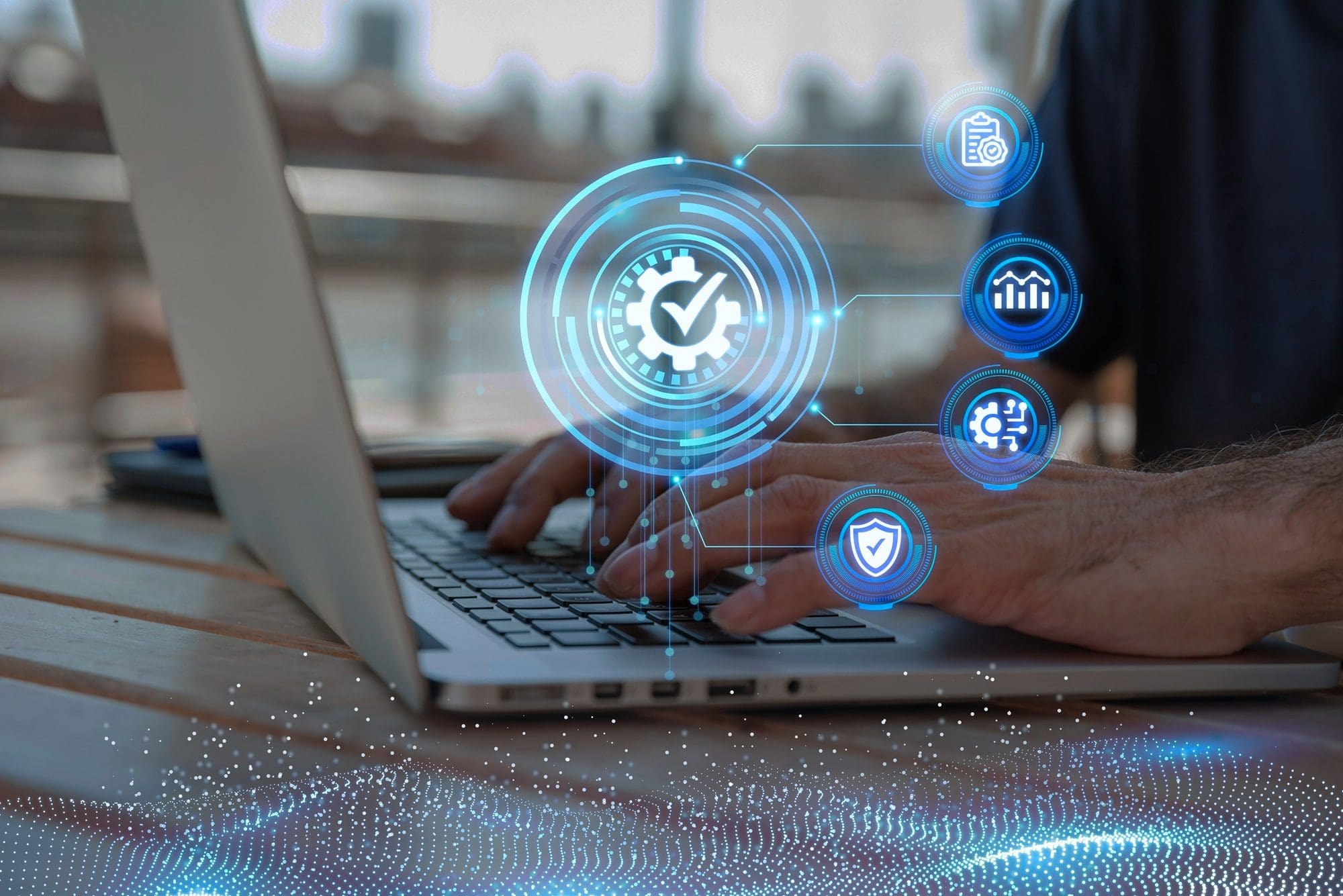Understanding cybersecurity compliance is critical. In today’s digital world, businesses are more vulnerable than ever to cybersecurity threats. Breaches can have devastating consequences including financial loss, reputation damage, and legal repercussions. Compliance with regulations like HIPAA, GDPR, and PCI DSS can help protect businesses from fines and legal action, but it’s not always clear how cybersecurity fits into compliance. In this blog post, we’ll explore the link between cybersecurity and compliance to help businesses understand why cybersecurity compliance is essential to their success.

What is Cybersecurity Compliance?
Cybersecurity compliance refers to the process of ensuring that an organization adheres to relevant laws, regulations, standards, and ethical practices concerning the protection of information systems and data. Compliance is often mandatory, depending on the industry and the type of data an organization handles.
Here’s a breakdown of what it typically involves:
Regulations and Standards
Organizations must comply with various regulations and standards that dictate how to handle sensitive information. Examples include the General Data Protection Regulation (GDPR) in the EU, the Health Insurance Portability and Accountability Act (HIPAA) in the US for health information, and the Payment Card Industry Data Security Standard (PCI DSS) for payment data.
Policies and Procedures
Compliance requires the establishment and enforcement of internal policies and procedures that align with legal and regulatory requirements.
Risk Management
Identifying, assessing, and mitigating risks to the security of information is a key component of compliance.
Security Measures
Implementing technical and administrative security measures, such as encryption, access controls, and employee training, is critical for compliance.
Auditing and Reporting
Regular audits are conducted to ensure compliance, and findings are reported to stakeholders, which can include regulatory bodies.
Incident Response
Organizations must have plans in place to respond to security incidents and breaches, which is often a regulatory requirement.
Cybersecurity compliance ensures that an organization is protecting the confidentiality, integrity, and availability of data, which is fundamental in building trust with customers and avoiding legal penalties. It is a dynamic process that requires ongoing attention and adaptation to evolving threats and changing regulations.
Why is Cybersecurity Compliance Important?
Compliance requirements often dictate cybersecurity measures.
When it comes to cybersecurity compliance, many regulations require businesses to implement specific cybersecurity measures to protect sensitive data. For example, HIPAA requires healthcare organizations to encrypt patient data, while PCI DSS requires businesses that handle credit card data to maintain secure networks. By complying with these regulations, businesses are taking steps to prevent cybersecurity breaches. However, simply checking the boxes on a compliance checklist may not be enough to fully protect a business from cyber threats.
Cybersecurity breaches can lead to compliance violations.
A cybersecurity breach can be a violation of compliance regulations on its own, particularly if sensitive data is compromised. For example, if a business is found to have violated HIPAA regulations due to a data breach, they could face huge fines and legal action. In some cases, a single cybersecurity breach could be enough to put a business out of compliance with multiple regulations. By prioritizing cybersecurity, businesses can avoid costly compliance errors.
Cybersecurity Compliance helps businesses communicate their cybersecurity efforts.
When businesses comply with regulations, they are often required to provide documentation of their cybersecurity measures. This documentation can help businesses communicate their cybersecurity efforts to stakeholders like customers, employees, and partners. By demonstrating that they are taking cybersecurity seriously and complying with regulations, businesses can build trust and protect their reputation.
Cybersecurity Compliance Requires an Ongoing Effort
Neither cybersecurity nor compliance are one-time projects. Cyber security threats are constantly evolving, and regulations are regularly updated to keep pace with the changing threat landscape. Businesses must be proactive in their approach to cybersecurity and compliance, regularly reviewing and updating their efforts to stay ahead of threats. By prioritizing these ongoing efforts, businesses can avoid costly breaches and violations.
Cybersecurity and compliance are essential to business success.
Cybersecurity and compliance are essential components of a successful business. Breaches and compliance violations can have far-reaching consequences that can damage a business’s reputation, harm their bottom line, and even put them out of business entirely. By understanding the link between cybersecurity and compliance, businesses can take a comprehensive approach to protecting themselves from cyber threats and compliance errors.

Wrapping Up – Understanding Cybersecurity Compliance
The link between cybersecurity and compliance is clear. Compliance requirements often dictate cybersecurity measures, breaches can lead to compliance violations, compliance helps businesses communicate their cybersecurity efforts, and both cybersecurity and compliance are ongoing efforts essential to business success. By prioritizing both cybersecurity and compliance, businesses can protect themselves from cyber threats, avoid costly violations, and build trust with stakeholders.
Navigating the complex landscape of compliance can be challenging, but we’re here to help. Our team of experts will work with you to understand your specific business needs and regulatory requirements. We’ll then develop a comprehensive compliance strategy that not only meets but exceeds industry standards.
With our proactive approach, we’ll continually monitor your systems to ensure ongoing compliance and adjust strategies as needed in response to changes in regulations or business operations. We also offer training for your staff to ensure everyone understands their role in maintaining compliance. With us by your side, you can focus on what you do best – running your business – while we handle the complexities of compliance.

 Tom Kirkham brings more than three decades of software design, network administration, and cybersecurity knowledge to organizations around the country. During his career, Tom has received multiple software design awards and founded other acclaimed technology businesses.
Tom Kirkham brings more than three decades of software design, network administration, and cybersecurity knowledge to organizations around the country. During his career, Tom has received multiple software design awards and founded other acclaimed technology businesses.
